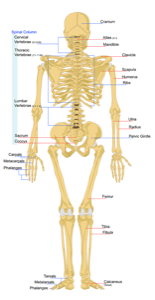
A spinal cord injury and disability can be devastating, but it does not have to ruin your life financially. You may be entitled to private or employer-sponsored disability insurance.
A spinal cord injury disability occurs when someone suffers from the loss of function, mobility or feeling in the body. As a victim of spinal cord damage, you have much at stake. It is likely you are rendered disabled to some degree, if not entirely. Some who suffer from back and spine disorders can continue working, but many lose their ability to function in the workplace altogether.
The spine, also called the vertebral column or the spinal column, is a collection of flexible bones that surround the spinal cord. The spinal cord is the bundle of nerves that extend from the base of the brain down the center of a person’s back, to the waist. Nerves within the spinal cord carry nerve impulses – messages – to and from the brain to the rest of the body.
The brain and the spinal cord make up the Central Nervous System. When the spinal cord is injured, impulses from the brain can no longer travel through the damaged area, stopping the flow of information between the brain and certain parts of the body.
Causes of Spinal Cord Injury Disability
A spinal cord injury (SCI) can occur under a variety of circumstances. Common causes are car accidents, work-related accidents, sports accidents, and medical negligence or malpractice.
Spinal cord injury disability results in the following disabling conditions:
- Paralysis
- Quadriplegia (paralysis of all four limbs, also called tetraplegia)
- Paraplegia (complete paralysis of the lower half of the body)
- Loss of sensation
- Breathing Difficulties
- Sexual Dysfunction
- Bowel Dysfunction
- Bladder Dysfunction
These injuries change you and your family’s lives forever. You may require wheelchair access and other modifications to your home or vehicle, and around the clock care for many or all of your activities of daily living.
Emergency Signs and Symptoms
Emergency signs and symptoms of a spinal cord injury after an accident may include:
- Extreme back pain or pressure in your neck, head or back
- Weakness, incoordination or paralysis in any part of your body
- Numbness, tingling or loss of sensation in your hands, fingers, feet or toes
- Loss of bladder or bowel control
- Difficulty with balance and walking
- Impaired breathing after injury
- An oddly positioned or twisted neck or back
Levels of Spinal Cord Disability
Spinal cord injuries are referred to as either complete or incomplete:
- A complete SCI is when the body has no function – the injured person is completely immobile – below the level of the injury, and both sides of the body are affected equally.
- An incomplete SCI means there is some functioning below the level of the injury. The injured person can feel parts of the body that are immobile, or they can move one limb more than another.
Contact Us Today
If your claim for long term disability insurance benefits for spinal cord injury disability was denied, you need an experienced attorney to get you the benefits you deserve. Call Mehr Fairbanks Trial Lawyers without delay, for a free evaluation of your claim: 800-249-3731.
We represent disability insurance claimants all over the United States and deal routinely with the “big deniers” of group and individual LTD insurance.
 Kentucky ERISA Disability & Life Insurance Claim Lawyers
Kentucky ERISA Disability & Life Insurance Claim Lawyers

